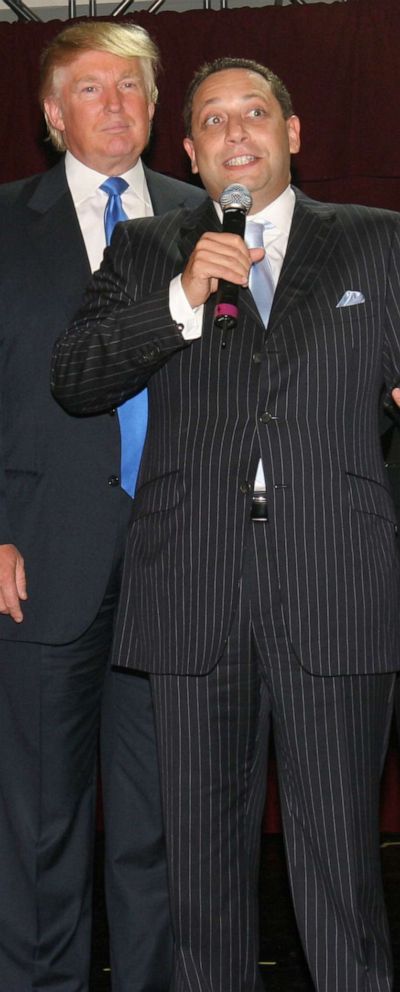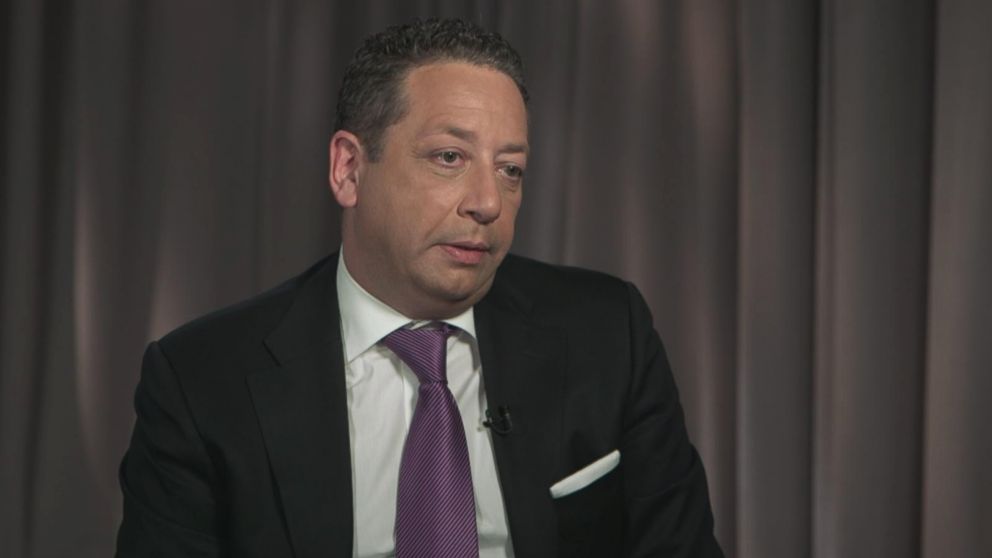Inside controversial ex-Trump associate Felix Sater’s life in espionage for the US government: Document
Years before he became a key figure in special counsel Robert Mueller’s investigation into links between Donald Trump and Russia, former Trump business associate Felix Sater really was a globetrotting secret agent who risked his life to help the U.S. government “combat terrorists and rogue states,” according to a newly unsealed court document.
The document, written by federal prosecutors in August 2009, outlines what they called Sater’s “extraordinary cooperation” in collecting information on Russia, al-Qaida, the Taliban, North Korea, as well as on the Italian mafia in the U.S. in the late 1990s and 2000s, confirming some of the fantastic tales Sater has told since his more recent association with Trump thrust him into the public glare.
Justice Department officials have lauded Sater’s "cooperation" with the U.S. government, and previously unsealed documents provided glimpses into his secret work abroad. But the new document offers the government’s narrative of what appear to be a series of intelligence coups credited to Sater.
The intelligence he gathered included the purported satellite phone numbers for Osama bin Laden and his whereabouts after the Sept. 11, 2001 attacks, details on an assassination plot against then-President George W. Bush and “information on North Korean nuclear capabilities,” the document says.
“[I]ndividuals in the intelligence community with knowledge of the information Sater provided told the government that his information was taken very seriously and was carefully analyzed,” it says.
The document deals only with Sater’s exploits in the 1990s and 2000s, but Sater told ABC News he continued to provide the U.S. government with information until special counsel Robert Mueller began his investigation into Trump’s ties to Russia, an investigation in which Sater predicted he’d be involved due to his relationship with Trump. He said that over his career as a U.S. government source, he was never asked for and never provided information relating to Trump.

The unsealed document is what's called a 5K1 letter filed by prosecutors in a mafia-linked multi-million-dollar stock fraud case from the mid-1990s in which Sater pleaded guilty to a racketeering charge. He wasn’t sentenced until 2009, before which prosecutors praised Sater as an “exemplary cooperator who worked diligently to further the aims of the missions to which he was assigned.” In the end he was able to dodge jail time with a $25,000 fine and was not ordered to pay restitution.
The document was unsealed as part of a push in court by First Look Media, publisher of The Intercept, and others to reveal more information about Sater’s deal with the U.S. government. Sater’s international exploits were reported by Buzzfeed in 2018, but Sater told ABC News he feels further vindicated by the government’s official account.
“Most people don’t believe the things I’ve done, but I’ve done them,” Sater said. “So with this happening, the way it’s being confirmed by the Justice Department and federal courts, gives me honestly some satisfaction.”
The letter says that Sater was overseas in 1998 when he learned that law enforcement wanted to talk to him about his role in the stock fraud scheme, and he then reached out to U.S. intelligence officials to offer information. Sater, who was born in the Soviet Union but immigrated to the U.S. as a child, claims he was actually recruited as a source by the Defense Intelligence Agency while he was doing business in Russia more than a year prior to learning about the FBI’s interest. The DIA declined to comment on its purported relationship with Sater.
At the end of 1998, he returned to the U.S., pleaded guilty in the fraud case, became a cooperating witness for prosecutors and the FBI helping to bring down the mob, and continued his work as a long-term source for U.S. intelligence, including the CIA, the letter says.
The letter says Sater was connected to “several” high-ranking Russian military and former military officers, as well as Russian intelligence officers, from whom he learned “key information” that he passed along to the U.S. intelligence community, “particularly concerning the Middle East.”
One of his sources, whom the letter describes as a former high-ranking KGB officer and arms dealer, provided information about “threats to the U.S. emanating from Afghanistan.”
Another source, a precious stones dealer, helped Sater gather intelligence on al-Qaida, including its “internal structure and financial capabilities” and the supposed whereabouts of bin Laden and Taliban leader Mullah Mohammed Omar.
Sater was also able to obtain the serial numbers of stinger missiles in the possession of an Afghan group, and received information on the results of U.S. airstrikes in Afghanistan.
“Sater should be credited with efforts he made in making those sources available to the intelligence community,” the letter says. “Additionally, Sater gathered much of this information while traveling to dangerous areas in Central Asia.”
Sater managed to keep a relatively low-profile until reports emerged that he, along with President Trump’s then-personal attorney Michael Cohen, had pursued a business deal to build a Trump tower in Moscow during the 2016 presidential campaign – an ultimately failed project that nonetheless drew close scrutiny from federal investigators and Mueller. Sater has said he had introduced himself to Trump in 2000 and had worked as a “senior advisor” to the future president, helping to raise funding for various real estate deals before the Moscow tower project thrust him in the spotlight.
In 2015, Sater told Cohen in an email published by The New York Times, “Buddy our boy can become President of the USA and we can engineer it.”
Sater previously told ABC News’ George Stephanopoulos that that and other emails only revealed he was “beyond giddy” about the prospect of a billion-dollar deal and Trump’s candidacy.
“Eventually, it will become known that I’m guilty of trying to build the world’s tallest building, and that’s about it,” Sater said then.
Most recently, Sater testified behind closed doors before the House Intelligence Committee after which the committee released a rare statement alleging Sater did not fully cooperate, despite Sater’s claims to the contrary.
Sater told ABC News he hopes the newly released letter about his espionage past will rehabilitate his image as a patriot and help to shake off what he calls the mistaken impression that he’s some kind of Russian “stooge” or mobster – an impression he says dates back to his 20s when he spent a year in prison after slashing a man’s face with a drinking glass in a bar fight, along with his later role in the mafia-backed stock scheme.
“Maybe certain people are reading [the letter] and saying, ‘Hey, this guy did a lot for our country. And if he did some wrong things in his 20s, he’s more than paid back for them,’” Sater said. “I mean, isn’t this the country of second chances?”




